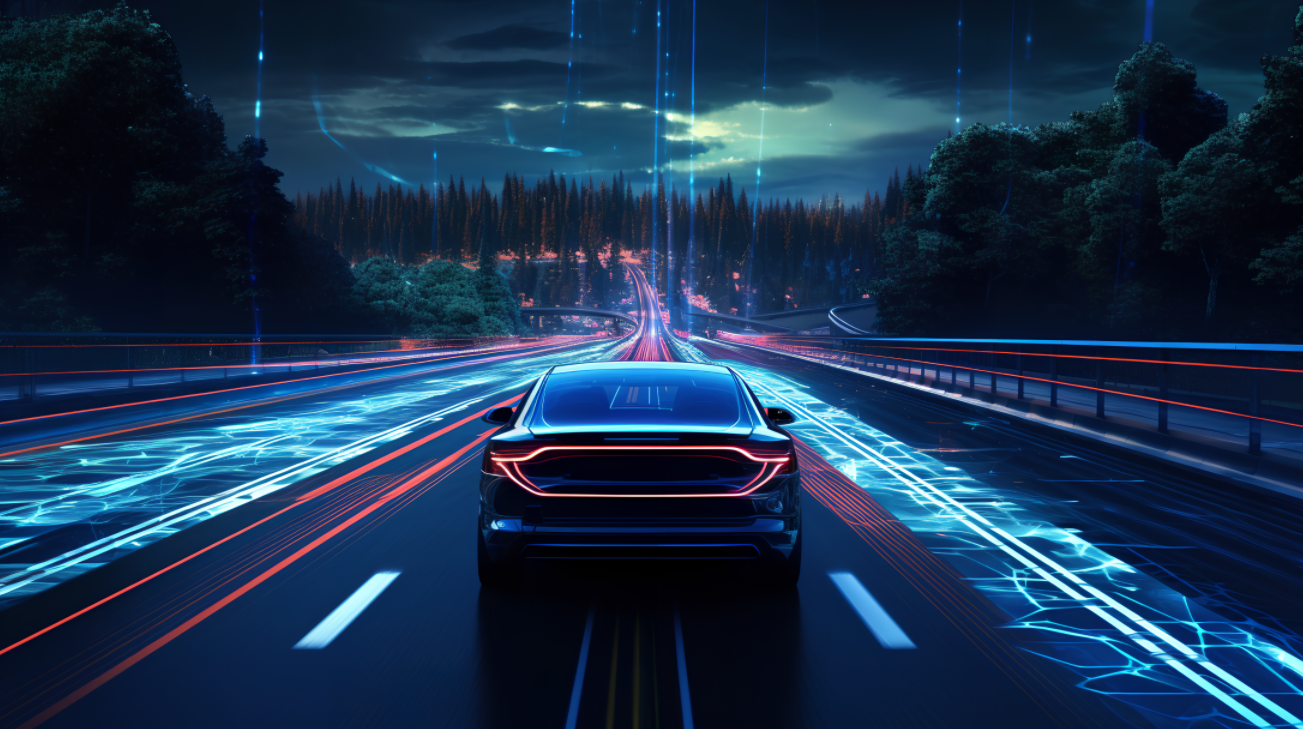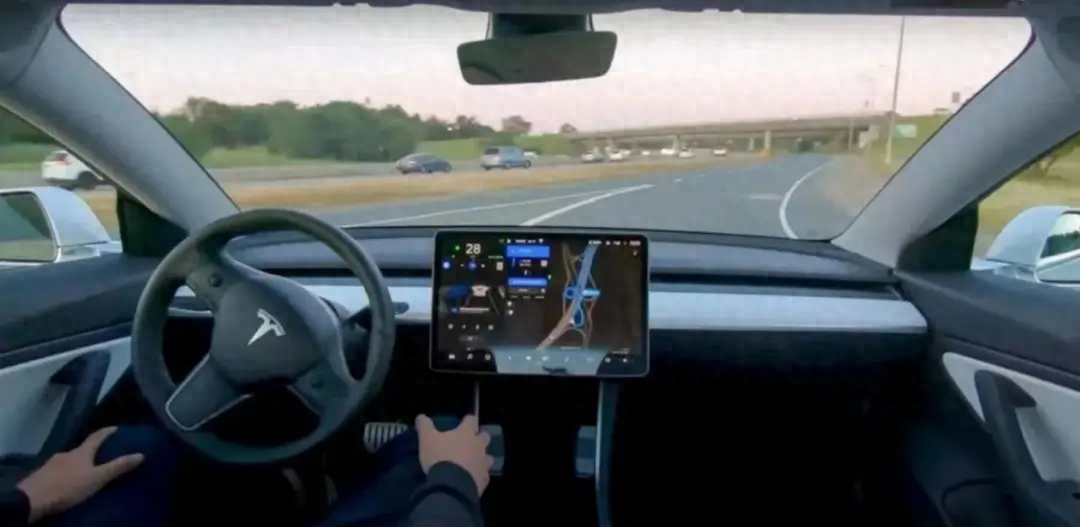
Tesla has recently launched the FSD V12 version for testing in North America, and there are reports from China stating that Shanghai Nanhui New City is promoting a pilot project with 10 Tesla vehicles to implement FSD.

With the imminent arrival of this technology in China, there is renewed hype around autonomous driving, particularly due to Tesla's FSD V12 version which utilizes end-to-end large-scale model technology for widespread implementation. Over the past year, almost 90% of domestic car manufacturers and autonomous driving companies have begun adopting end-to-end technology. Previously considered disruptive, Tesla has now introduced competition in the local market for new energy vehicles. Can Tesla's FSD revolutionize autonomous driving once again?
“End-to-End” is necessary
End-to-End is a concept about deep studying, which means the AI model can obtain the final result through the input of the original data, typically the GPT large model and ChatGPT published by Open AI. In recent years, the level of automobile intelligence has rapidly increased and the application scenarios for smart driving have expanded. However, due to heavy reliance on manually set rules, limited versatility, high costs, and potential extreme issues, there are limitations in the adoption rate of intelligent driving.
On the other hand, end-to-end technology utilizes deep learning models to directly learn driving strategies from raw sensor data (such as images and videos) during the driving process, eliminating the need for manually designing complex rules or extracting manual features. This approach enables autonomous driving systems to better understand and adapt to complex traffic environments, thereby enhancing safety and efficiency in driving. It is considered the primary trend in this automotive intelligence revolution.
Previously, a research report revealed that over 90% of surveyed experts in the autonomous driving industry confirmed their companies have already started developing end-to-end technology. Most tech companies believe they cannot afford to miss out on this technological revolution.
Several research reports suggest that if Tesla's FSD successfully enters the Chinese market, it will become a strong competitor to domestic automakers' autonomous driving solutions and has the potential to become a major player in the domestic autonomous driving industry. Currently, companies like Huawei, Xpeng, Li Auto, and NIO have all announced their end-to-end autonomous driving technologies. Huawei's ADS 3.0 will be launched together with STELATO S9. Li Auto has recently established a dedicated team of around 200 people to accelerate progress in on-board capabilities.
Industry insiders believe that it will enhance consumer acceptance of the smart driving and software payment model in the market, while also setting a benchmark demonstration effect technologically to attract capital inflows and accelerate the evolution of smart driving technology. However, Tesla's establishment of factories in China has limited impact on the electric vehicle industry chain as FSD relies more on self-development or international manufacturers, with software relying on top AI talents rather than software engineers.
Auto-driving will speed up
Tesla announced the release of its V12 version of Full Self-Driving (FSD) in early 2023, claiming to have implemented a complete end-to-end large-scale model. This has sparked widespread industry discussions. Subsequently, other car manufacturers like NIO, Xpeng, Li Auto also revealed their plans to deploy end-to-end intelligent driving systems. In terms of Tesla's FSD technology advantages, it achieves true 'end-to-end' automation by covering the entire process from perception to decision-making and control, significantly reducing human intervention and improving system autonomy and flexibility.

The FSD technology relies on real-time data to train and optimize its models, allowing continuous learning and improvement in various complex road conditions. It is widely believed that domestic car manufacturers are 1.5-2 years behind Tesla in terms of research and development progress. However, there are doubts within the industry about whether Tesla's FSD technology can maintain its lead considering the complex road conditions in China.
In response to the mentioned situation, Chinese domestic enterprises have developed more tailored solutions for the local context. According to a spokesperson from NIO, Tesla's Full Self-Driving (FSD) system has shown impressive performance in the United States and is considered an industry benchmark. However, further deep learning is still needed by Tesla to adapt to China's road conditions. He Xiaopeng, Chairman of Xpeng Motors, also shared his video experience report and views on Tesla's FSD through social media on June 26th. He mentioned that while Tesla's FSD performed smoothly throughout the journey, it faced challenges in handling China's complex roads with millions of vehicles.
Smart driving companies and traditional car manufacturers are both exploring end-to-end big model technology. DEEPROUTE.AI presented their high-level smart driving platform, DeepRoute IO, along with its corresponding solution. Great Wall Motors intends to implement this solution in three vehicle models this year.
There are still three major bottlenecks in the 'end-to-end' autonomous driving solution - algorithms, computing power, and data limitations, according to the head of Horizon, a domestic autonomous driving company. Regarding algorithms, it is necessary to explore interpretable and intervention-strong systems for autonomous driving; simultaneously, more powerful computing platforms are needed; additionally, there must be massive and rich real-world data at the data level. The responsible person stated that car companies currently need to achieve efficient data processing at the intelligent driving level by relying on 'end-to-end' technology.
Introducing Tesla's FSD in China will significantly impact the intelligent driving market. It's worth noting that domestic and traditional car manufacturers are exploring and enhancing NOA, rather than just focusing on its availability in different cities.
The director of Tongji University's Automotive Safety Research Institute, Zhu Xichan, predicts a 3.4% penetration rate for NOA in 2023. However, which company would dare not develop NOA this year? He believes industry leaders are prioritizing NOA for the next two years. If the penetration rate reaches close to 10% or even 16% this year, it could become unstoppable by 2025.
Translator:Wei Xiong

 Room 1104,Block B,JingBan Building,6 Middle Beisanhuan Road,Xicheng District,Beijing
Room 1104,Block B,JingBan Building,6 Middle Beisanhuan Road,Xicheng District,Beijing
 (8610)62383600
(8610)62383600
 quanqixiang@carresearch.cn
quanqixiang@carresearch.cn
 京公网安备:11010202007638号|京ICP备17032593号-2|Report illegal and bad information:010-65993545-8019 jubao@carresearch.com
京公网安备:11010202007638号|京ICP备17032593号-2|Report illegal and bad information:010-65993545-8019 jubao@carresearch.com
Legal support:Beijing Yingke Law Firm|All rights reserved, DO NOT reproduce without permission